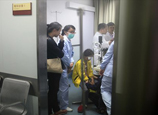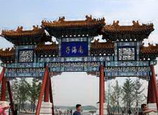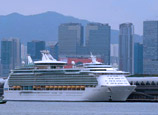
Most first-tier cities in China are barely suitable for living due to their poor ecological environment, despite rapid economic development and preferential regulations for investment, said a newly released report by a top Chinese think tank on Sunday.
First-tier cities, including Beijing, Shanghai and Guangzhou, failed to make the list of habitable cities even though they are in the top 10 in terms of commercial advantages, unification of city and countryside, and culture development, according to a report on China's urban competitiveness from the National Academy of Economic Strategy under the Chinese Academy of Social Sciences.
Only two first-tier cities, Hong Kong and Macao, are among the country's most livable cities, said the report.
Beijing ranks best in terms of academic resources and intellectual atmosphere, second-best in business environment and sustainability, and third in cultural industry. But it dropped to 74th and 119th in habitable and ecological environment, the report said.
Huang Hui, a 27-year-old software engineer from Beijing, said he found the report "objective". "Beijing has the best medical, academic resources compared with other cities, but it's not necessarily the best choice when it comes to being habitable," he said.
"I'm proud of the cultural diversification in the city, but it's a pity that Beijing sacrifices the most basic essentials, air and water, simply in exchange for all the rapid development."
In the past decade, there have been mounting problems in cities nationwide, including traffic jams, housing tension and food safety issues.
Li Guangquan, a researcher with the China Center for Service Sector Research, said the ultimate goal of urban competitiveness should be the pursuit of citizens' benefits.
However, many first-tier cities, despite their outstanding competitiveness, are barely people-oriented and hardly satisfactory in ecological protection, Li said.
High housing prices have become the main reason that some cities are increasingly "uninhabitable", with other reasons including poor air quality and traffic congestion, he said.
According to the report, livability is the primary and most basic function of a city and plays a key role in upgrading urban competitiveness.
Ni Pengfei, director of the center for city and competitiveness under the Chinese Academy of Social Sciences, said the competitiveness of a city usually rapidly ascends as economic competitiveness increases. However, the rise slows down and even descends soon afterward.
















 Developer razes historic Guangzhou structures
Developer razes historic Guangzhou structures


![]()
